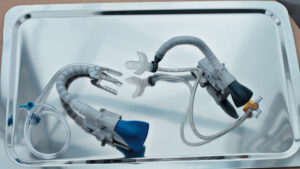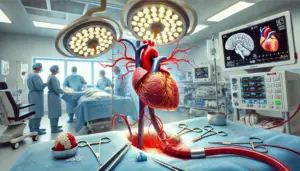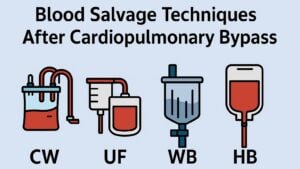Background: Existing models have performed poorly when predicting mortality for patients undergoing venovenous extracorporeal membrane oxygenation (VV-ECMO). This study aimed to develop and validate a machine learning (ML)-based prediction model to predict 90-day mortality in patients undergoing VV-ECMO.
Methods: This study included 368 patients with acute respiratory failure undergoing VV-ECMO from 16 tertiary hospitals across South Korea between 2012 and 2015. The primary outcome was the 90-day mortality after ECMO initiation. The inputs included all available features (n=51) and those from the electronic health record (EHR) systems without preprocessing (n=40). The discriminatory strengths of ML models were evaluated in both internal and external validation sets. The models were compared with conventional models, such as respiratory ECMO survival prediction (RESP) and predicting death for severe acute respiratory distress syndrome on VV-ECMO (PRESERVE).
Results: Extreme gradient boosting (XGB) (areas under the receiver operating characteristic curve, AUROC 0.82, 95% CI (0.73 to 0.89)) and light gradient boosting (AUROC 0.81 (95% CI 0.71 to 0.88)) models achieved the highest performance using EHR’s and all other available features. The developed models had higher AUROCs (95% CI 0.76 to 0.82) than those of RESP (AUROC 0.66 (95% CI 0.56 to 0.76)) and PRESERVE (AUROC 0.71 (95% CI 0.61 to 0.81)). Additionally, we achieved an AUROC (0.75) for 90-day mortality in external validation in the case of the XGB model, which was higher than that of RESP (0.70) and PRESERVE (0.67) in the same validation dataset.
Conclusions: ML prediction models outperformed previous mortality risk models. This model may be used to identify patients who are unlikely to benefit from VV-ECMO therapy during patient selection.
Keywords: ARDS; critical care.







